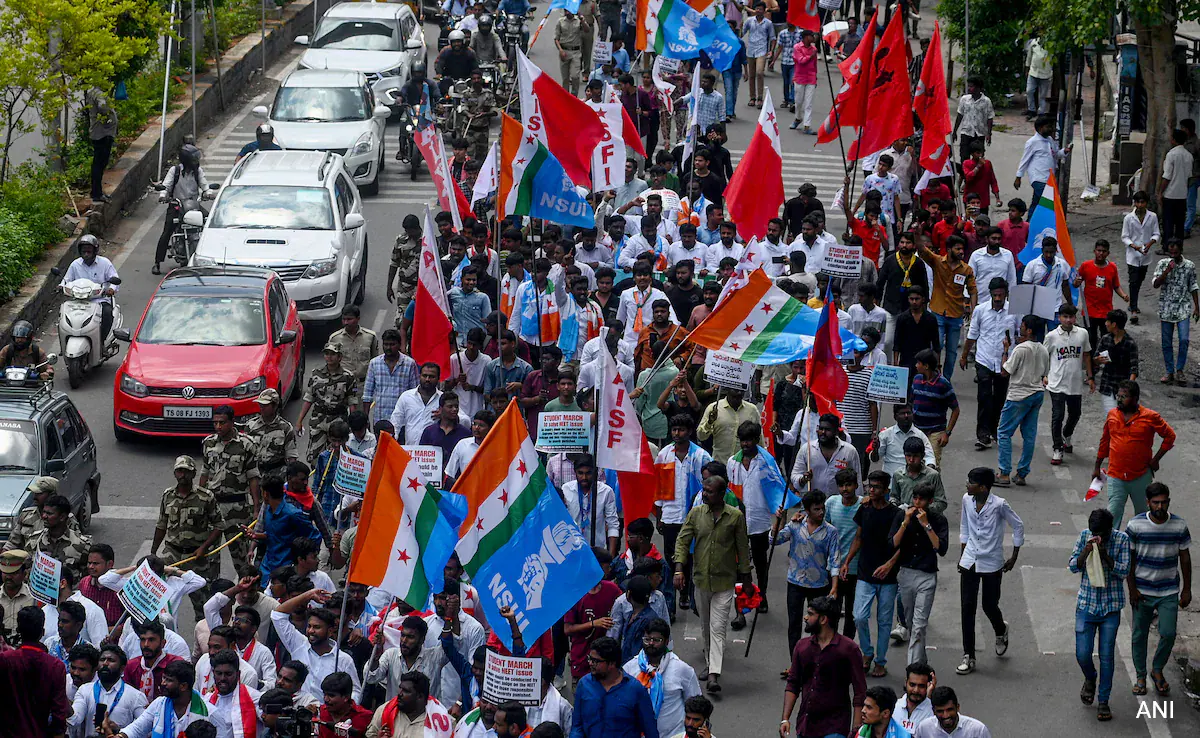Unveiling the ‘Solver Gang’: A Deep Dive into the NEET Paper Leak Scandal
The National Eligibility cum Entrance Test (NEET) is a critical examination for medical aspirants in India, serving as the gateway to undergraduate medical courses. Given its significance, any compromise in the integrity of the NEET exam has far-reaching consequences. The recent NEET paper leak scandal, orchestrated by the so-called ‘Solver Gang’, has cast a shadow over the examination process, revealing vulnerabilities in the system.
The ‘Solver Gang’ operated with a high degree of sophistication, meticulously planning and executing the paper leak. The gang’s modus operandi involved recruiting ‘solvers’—individuals with advanced knowledge and expertise in the subjects tested in the NEET exam. These solvers were either professionals or top-performing students from previous years. Their recruitment was often facilitated through a network of intermediaries who identified potential solvers and negotiated terms.
Access to the exam papers was achieved through various illicit means. In some instances, insiders within the examination process were compromised, allowing the ‘Solver Gang’ to obtain the papers before the exam date. Once in possession of the papers, the gang would relay the answers to the solvers, who would then write the exams on behalf of the candidates or provide the answers to the candidates via technological means during the examination. The financial aspects of this scam were substantial, with candidates or their families paying exorbitant sums to secure guaranteed high scores.
Read More : NEET Paper Leak
The impact of the NEET paper leak on the examination process has been profound. It has undermined the credibility of the NEET exam, causing distress among genuine candidates and raising questions about the fairness of the selection process. Moreover, the scandal has broader implications for the education system in India. It highlights the need for stringent security measures and robust checks to prevent such breaches in the future.
The scale and sophistication of the ‘Solver Gang’ operation underscore the challenges faced by examination authorities in maintaining the integrity of high-stakes exams like NEET. As the investigation unfolds, it is imperative to address these challenges to restore trust in the examination system and ensure a level playing field for all aspirants.
The arrest of Ravi Atri, the alleged mastermind behind the NEET paper leak, marks a significant milestone in the ongoing battle against academic fraud in India. Ravi Atri, known for his involvement in various educational scams, has a notorious reputation that precedes him. Prior incidents have linked him to similar fraudulent activities, which laid the groundwork for his eventual apprehension.
Law enforcement agencies, including the Special Task Force (STF) and local police departments, collaborated extensively to bring Atri to justice. The investigative process was intricate and multifaceted, encompassing the examination of digital footprints, financial records, and physical surveillance. Atri’s arrest was the result of meticulous planning and coordination among these agencies, which systematically uncovered the network’s operations through a series of raids and interrogations.
Key evidence against Atri includes a trove of communication records, highlighting his direct involvement in orchestrating the leak. Financial transactions that revealed suspicious activities were scrutinized, leading investigators to connect the dots between Atri and his accomplices. Testimonies from other gang members further corroborated the findings, painting a comprehensive picture of the scam’s inner workings.
Following his arrest, Ravi Atri faced numerous charges, including criminal conspiracy, cheating, and forgery. The legal proceedings have been rigorous, with multiple court hearings to determine the extent of his culpability and the ramifications of his actions. Legal experts suggest that Atri could face severe penalties, including prolonged imprisonment and hefty fines, given the gravity of the offense and its widespread impact on the integrity of the educational system.
The case against Ravi Atri continues to unfold, serving as a cautionary tale about the lengths to which authorities are willing to go to preserve the sanctity of competitive examinations. As the legal process moves forward, it remains to be seen how this high-profile arrest will influence future measures to prevent such unethical practices in academia.





